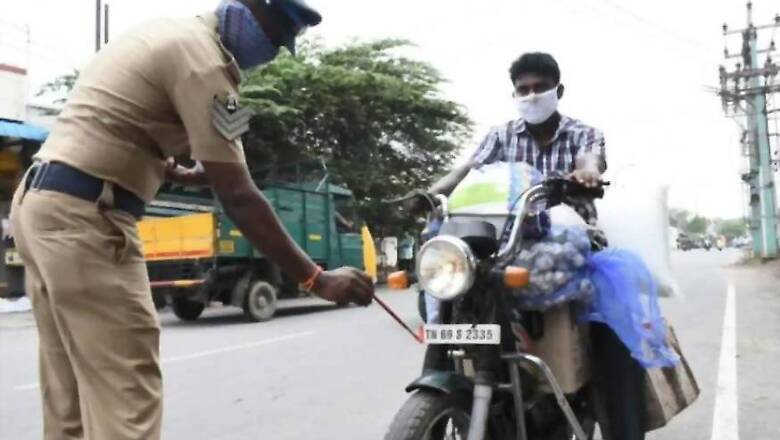
views
CHENNAI: Erode, a mid-western district in Tamil Nadu that was one of the first to report coronavirus victims linked to Delhi’s Nizamuddin congregation, recently turned into an orange zone with no new cases over the last two weeks.
The district well on its way into the green category, thanks to an aggressive containment and isolation strategy of the local administration. In total, Erode recorded over 70 patients and the last batch of discharges happened on April 27.
How Erode handled the outbreak after its detection in mid-March is a kind of rare surveillance strategy that bureaucrats and police chiefs have implemented in the past.
Speaking to CNN News18, Erode district Collector Kathiravan said the district administration put every infected person in institutional quarantine, “no home quarantines at all,” a novel approach to slash chances of the spread when people self-isolate.
Almost all the cases that came about in Erode were either travellers back from the Nizamuddin conference or close contacts of the returnees. The district administration had narrowed their task to one challenge: Net all the returnees and quarantine them. With the help of police, officials took to squinting at CCTV footages around prominent mosques to identify probable returnees and tracking them; Once tested, those with a coronavirus infection were quarantined.”
"On March 15, we received information of a Thailand national leaving from Coimbatore airport. We secured him and through him, we secured six other Thai nationals and put them under quarantine. After interrogating, we found the close associates of these nationals and secured over 22 people within two days. They were institutionally quarantined and not out under home quarantine. In the meantime, we traced all the CCTV footages within a radius of 2-3 km from the dargah (visited by Thai nationals). This is how we came to trace all those who had come in contact with the Thai nationals,” said Kathiravan.
By the time the national lockdown was imposed and a Delhi-generated list of returnees from Nizamuddin reached Tamil Nadu’s administrative headquarters, Erode had already secured most of the travellers. “Before the list came from the government, we had secured all 27 people. We used our own intelligence and with the help of local people, we traced the people who had visited Delhi. We referred to the list of trains that passed through Erode onward to Delhi from March 13 and secured those who had been on the trains. We also got a list of flights which came from Delhi. We got a lot of information on persons who travelled with the Tablighi Jamaat people.We put them all in quarantine centers,” said the bureaucrat.
Erode was the first district to identify Tablighi Jamaat as a cluster and alerted other districts as well.
"We were isolating people who came from other districts, states and other countries. We got to know that people attending one particular conference (Tablighi Jamaat) were manifesting more positive results even though they did not have symptoms at all. Then we tracked this cluster. We identified as many as 150 people, including family members, and quarantined them. This is how community spread was contained in our district. About 4,500 to 5,000 samples have been tested till date and except for the initial 70 cases—all linked to the conference—everyone was negative," S. Sakthi Ganesan, SP, Erode told News 18.
Once the infected people were isolated, the rest of the challenge lay in forging an iron clamp around the containment centres. With the district borders sealed, the district administration split its jurisdiction into a safe bubble and the containment zone where the infected people were recovering. “We are also not allowing lorry drivers from other states to enter the district,” the collector said.
"We were far ahead of virus and not behind, that way, community spread was contained," Ganesan said. The IPS officer also added that one thing he learnt from the COVID-19 pandemic was team work which helped the district contain the coronavirus positive numbers.



















Comments
0 comment